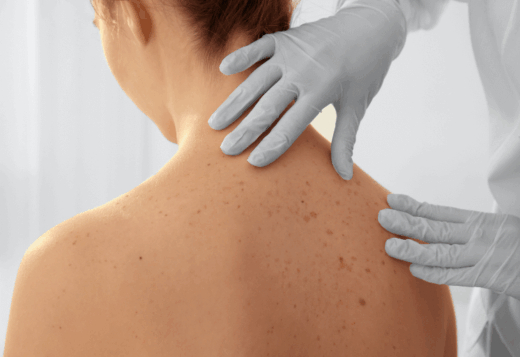A rash might seem like a small issue just a few red spots or itchy patches. But your skin is often the first organ to react when something isn’t quite right inside your body. Whether it’s an allergic reaction, a sign of an infection, or a symptom of an underlying health condition, understanding what causes a rash can help you respond appropriately.
At Erdem Hospital, we’ve spent over 37 years helping patients find clarity when symptoms are confusing. Skin issues may be visible on the surface, but their causes can be far more complex. Here’s what you need to know about rashes what they are, what causes them, and when to seek help.
What Is a Rash?

A rash is any visible change in the appearance or texture of the skin. It can appear as redness, swelling, bumps, itching, scaling, or blisters. Some rashes appear suddenly and disappear just as quickly, while others may persist for days or even weeks.
Rashes may be:
- Localized (confined to one part of the body)
- Generalized (spread across multiple areas)
- Acute (sudden onset)
- Chronic (lasting for long periods or recurring)
Each type offers clues to its underlying cause.
Common Causes of Rashes
Rashes can be caused by a wide range of triggers. Understanding the context when the rash appeared, what it looks like, and any accompanying symptoms is essential for accurate diagnosis.
1. Allergic Reactions
Your immune system may overreact to certain substances, leading to contact dermatitis. Common triggers include:
- Fragrances or preservatives in skincare products
- Nickel in jewelry
- Latex gloves
- Certain fabrics or detergents
Allergic rashes are typically itchy, red, and may have blisters or dry patches.
2. Infections
Both viral and bacterial infections can cause rashes. Examples include:
- Chickenpox or shingles (caused by the varicella-zoster virus)
- Measles or rubella
- Fungal infections like ringworm
- Impetigo, a bacterial skin infection common in children
These rashes are often accompanied by fever, fatigue, or sore throat and may require medical treatment.
3. Autoimmune Disorders
Conditions such as lupus, psoriasis, and eczema can cause chronic rashes that flare up periodically. These rashes may involve scaling, cracking, or thickened skin and often require ongoing dermatological management.
4. Heat and Sweating
Sweat trapped in blocked pores can lead to heat rash (miliaria), especially in warm, humid climates. It presents as small red bumps or blisters and is common in babies and athletes.
5. Medications
Certain medications can trigger drug-induced rashes, which may appear suddenly and spread rapidly. These require immediate medical evaluation, especially if they are accompanied by difficulty breathing or swelling.
Symptoms That Shouldn’t Be Ignored
While many rashes are harmless and temporary, some require prompt medical attention. Seek professional help if:
- The rash is painful, blistering, or oozing
- It spreads quickly or covers a large area
- You also have a fever, swollen lymph nodes, or body aches
- You suspect an allergic reaction or drug side effect
- The rash lasts longer than a few days without improvement
At Erdem Hospital, our dermatologists can identify the root cause of persistent or unexplained skin symptoms and provide tailored treatment options from topical creams to allergy testing and systemic therapy.
Diagnosing the Cause of a Rash
A detailed medical history and physical examination are key to diagnosis. In some cases, we may perform:
- Patch testing (to identify allergens)
- Skin scraping or biopsy (for infections or autoimmune conditions)
- Blood tests (to check for systemic causes)
These diagnostics allow us to differentiate between similar-looking conditions and provide precise care.
Treatment Options at Erdem Hospital
Treatment depends on the underlying cause, but may include:
- Topical corticosteroids or antihistamines for inflammation and itching
- Antibiotics or antifungal medications for infections
- Lifestyle changes and trigger avoidance for chronic conditions
- Moisturizers and barrier creams to protect damaged skin
In many cases, a combination of medical treatment and daily skin care leads to lasting relief.
Your Skin Deserves Attention Not Guesswork
Skin is not only the body’s largest organ but also its most visible one. A rash may feel like an inconvenience, but it could be a signal worth listening to. Whether it’s a minor irritation or a symptom of something deeper, don’t ignore what your skin is trying to tell you.
With over 37 years of expertise, Erdem Hospital is committed to helping patients understand and treat skin conditions with compassion, science, and personalized care.
Let us help you feel comfortable in your own skin every day.